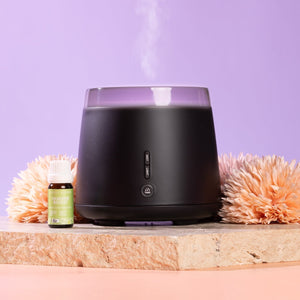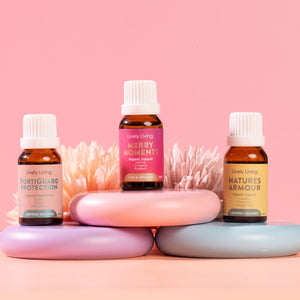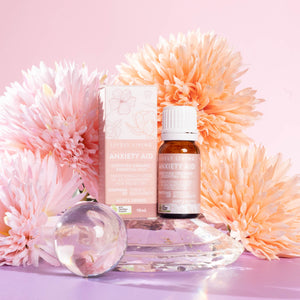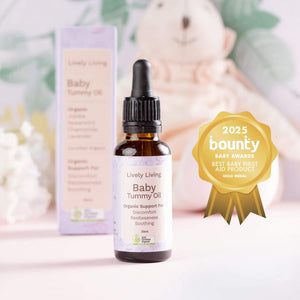Exploring the Therapeutic Benefits of Woodsy Essential Oils
Exploring the therapeutic benefits of woodsy essential oils invites us into a space of natural tranquility and healing. These potent plant extracts, with their rich, earthy aromas, can ground us, uplift our spirits, and contribute positively to our daily wellness. Let's look into how these remarkable oils can be a great choice for enhancing physical and emotional well-being.
Table of Contents:
- What Are Woodsy Essential Oils?
- The Science Behind Woodsy Essential Oils
- Top Therapeutic Benefits of Woodsy Essential Oils
- How to Use Woodsy Essential Oils
- Popular Woodsy Essential Oils and Their Benefits
- Creating Your Own Woodsy Essential Oils Blend
- Safety Considerations When Using Essential Oils
- Conclusion
What Are Woodsy Essential Oils?
Woodsy essential oils originate from various parts of trees and woody plants, such as the needles, bark, resin, or wood itself. They truly capture the deep, resonant essence of forests, bringing calming and grounding qualities into our lives. Common examples of these tree essential oils include cedarwood, pine, cypress, sandalwood, fir needle, and the robust black spruce essential oil.
These oils are concentrated plant extracts, carefully obtained through methods like steam distillation or cold pressing of the raw plant material. For centuries, diverse cultures have revered these tree oils for their profound healing properties. Today, their popularity continues in aromatherapy practices and as a natural remedy within complementary medicine for a variety of concerns.
Each essential oil, whether it's tea tree oil or lavender oil, has a distinct chemical profile that determines its specific aroma and therapeutic actions. The synergy of these compounds is what provides the wide range of essential oils benefits.
The Science Behind Woodsy Essential Oils
Woodsy essential oils are composed of numerous natural chemical compounds, primarily terpenes, that interact with our body and mind. When we inhale the aroma of an essential oil, odor molecules travel through the nasal passage to the olfactory system. This system is directly connected to the limbic system of the brain, which governs emotions, memory, and arousal, explaining how scents can instantly affect our mood and reduce anxiety.
These concentrated plant extracts can also be absorbed through the skin when applied topically, ideally diluted with a carrier oil. Once absorbed, the tiny molecules can enter the bloodstream and circulate throughout the body, exerting their effects on various physiological processes. Some compounds found in woodsy oils possess anti-inflammatory properties, while others demonstrate antibacterial properties or antiseptic properties.
Research indicates that specific constituents in woodsy oils can influence brain chemistry and brain function. For instance, cedrol, a compound in cedarwood oil, has been studied for its potential sedative effects, contributing to the oil's calming reputation. Similarly, other compounds may help improve focus or support the immune system, improving brain function through various pathways.
Top Therapeutic Benefits of Woodsy Essential Oils
The applications and oils benefits derived from woodsy essential oils are extensive. From promoting relaxation to supporting physical health, these natural extracts offer a holistic approach to well-being. Many people find these oils help with various aspects of daily life.
1. Stress Relief and Relaxation
One of the most appreciated benefits of woodsy essential oils is their capacity to alleviate stress and foster relaxation. The grounding, earthy scents of oils like cedarwood, sandalwood, and black spruce can significantly calm a restless mind and relax a tense body. This makes them excellent for unwinding after a demanding day or for preparing for restful improve sleep.
Inhaling a tree essential oil such as cedarwood has been shown in some studies to lower heart rate and blood pressure, which are physiological markers of stress. Diffusing these oils in your living space or adding a few drops to a warm bath can create a tranquil sanctuary, helping to reduce anxiety. While not strictly woodsy, lavender essential oil also shares these calming qualities and can be blended with woodsy oils for enhanced effect.
2. Improved Focus and Concentration
While known for relaxation, certain woodsy essential oils can also sharpen focus and enhance concentration. Oils like pine, fir needle, and even rosemary oil (though more herbaceous, it shares some invigorating qualities) are valued for their ability to improve cognitive performance. This makes them beneficial companions for study sessions, work projects, or any task requiring sustained mental effort.
The stimulating aroma of these oils can help clear mental fog and invigorate the senses. Compounds within these oils may contribute to improving brain function by potentially increasing blood flow to the brain or by stimulating neurotransmitter activity. Diffusing these oils in your workspace can help maintain alertness and productivity throughout the day.
3. Boosted Immune System
Many woodsy essential oils, particularly tea tree oil and eucalyptus oil, possess strong antimicrobial, antibacterial properties, and antiseptic properties. These natural defenders can help the body fend off harmful pathogens like bacteria and viruses. Regular use in a diffuser or a homemade cleaning spray can contribute to a healthier home environment.
The oil tea tree, also known as tea tree essential oil, is especially renowned for its immune-supporting capabilities. Research has consistently demonstrated its efficacy against a broad spectrum of microorganisms. Incorporating such oils into your wellness routine, especially during seasons when illnesses are more prevalent, can be a supportive measure for your immune system.
4. Improved Respiratory Health
Woodsy oils like eucalyptus oil, pine, fir needle, and black spruce essential oil can offer significant benefits for respiratory health. Their crisp, camphoraceous, or resinous aromas can help open up airways, clear congestion, and ease breathing difficulties. This makes them particularly helpful when dealing with common colds, coughs, or seasonal allergies.
Inhaling steam infused with a few drops of eucalyptus oil or pine oil is a traditional natural remedy for respiratory discomfort. These oils can act as expectorants, helping to loosen phlegm, and their anti-inflammatory properties may help soothe irritated airways. This application is a common practice in complementary medicine for respiratory support.
Diffusing these oils can also help maintain clear breathing, especially in dry indoor environments or during winter. The fresh scent can make breathing feel easier and more comfortable. Remember to dilute essential oils properly if applying them topically for a chest rub.
5. Enhanced Skin Health
Several woodsy essential oils offer remarkable benefits for skin health due to their anti-inflammatory, antiseptic, and astringent properties. Sandalwood oil, for instance, is highly valued in skincare for its soothing effects and its potential to improve skin tone and texture. It may help reduce the appearance of fine lines and support overall skin vitality.
Tea tree oil is a powerhouse for addressing various skin concerns. Its strong antibacterial properties make it effective against acne-causing bacteria, and it's a common ingredient in treatments for athlete's foot and minor skin infections. When applied topically after proper dilution with a carrier oil, it can also help heal wounds and soothe irritations.
Cedarwood oil can also be beneficial for the skin, sometimes used to manage conditions like eczema due to its anti-inflammatory and antiseptic actions. C
6. Pain Relief and Reduced Inflammation
Certain woodsy essential oils possess analgesic and anti-inflammatory properties that can help relieve pain and reduce inflammation. Oils such as black spruce, juniper berry, and pine can be beneficial for soothing sore muscles, easing stiff joints, and reducing joint inflammation associated with conditions like arthritis. This makes them a good option for those seeking a natural remedy for discomfort.
When applied topically with a carrier oil, these oils can penetrate the skin to target areas of pain and inflammation. Gentle massage with an oils blend containing these woodsy essences can improve circulation and promote relaxation in affected muscles and joints. This can be particularly comforting after strenuous physical activity or for chronic aches.
7. Mood Enhancement and Emotional Balance
Beyond stress relief, woodsy essential oils can actively boost mood and foster emotional equilibrium. The grounding aromas of oils like sandalwood, cedarwood, and frankincense can evoke feelings of stability and peace, helping to counter mood swings or feelings of overwhelm. These scents connect us to the steadfastness of nature.
Pine and fir needle oils, with their fresh and uplifting scents, can energize the mind and elevate spirits. They can be particularly helpful during times of mental fatigue or when you need a natural pick-me-up. Incorporating these oils into your morning routine can set a positive tone for the day.
An essential oils blend created specifically to boost mood can be a powerful tool. Combining woodsy notes with uplifting citrus fruit oils like lemon oil or orange oil can create a synergistic effect, enhancing the overall positive impact on your emotional state. Many find that essential oils aromatherapy helps them maintain a more positive outlook.
8. Support for Healthy Hair and Scalp
Some woodsy essential oils are noted for their benefits to hair health, including promoting hair growth and maintaining a healthy scalp. Cedarwood essential oil is often cited in this context, believed to stimulate hair follicles and increase circulation to the scalp. This can potentially contribute to stronger, healthier hair growth over time.
Tea tree oil, with its potent antifungal and antibacterial properties, is excellent for scalp health. It can help address issues like dandruff, itchy scalp, and even help manage conditions that might contribute to hair loss. Adding a few drops of tea tree essential oil or oil tea tree, as it's sometimes called, to your shampoo can be an easy way to incorporate its benefits.
Rosemary oil, while herbaceous, is another popular choice for hair care and blends well with woodsy scents. When combined, these oils can create a powerful natural remedy for promoting luscious locks and a problem-free scalp.
How to Use Woodsy Essential Oils
There are numerous effective ways to incorporate woodsy essential oils into your daily wellness practices. Understanding how to use them safely and effectively allows you to maximize their therapeutic potential. Always remember that essential oils are highly concentrated plant material, so a little goes a long way.
- Diffusion: This is one of the most popular methods. Add a few drops of your chosen essential oil or an oils blend to an essential oil diffuser filled with water. The diffuser disperses micro-particles of the oil into the air, allowing you to benefit from essential oils aromatherapy throughout your room or workspace. This method is excellent for altering mood, purifying the air, or supporting respiratory health.
- Topical Application: Woodsy essential oils can be applied topically to the skin, but it is critical to dilute essential oils first. Mix a few drops of the essential oil with a carrier oil, such as jojoba, almond, or coconut oil, before applying. This mixture can be massaged into sore muscles, applied to pulse points, or used on specific skin areas. Always perform a patch test on a small area of skin first to check for sensitivity before wider use. Learning how to dilute essential and oil topically is important for safety.
- Inhalation: For quick relief, especially for respiratory issues or a quick mood boost, direct inhalation is effective. Place 1-2 drops of essential oil onto a handkerchief or cotton ball and inhale deeply. Alternatively, add a few drops to a bowl of hot (not boiling) water, cover your head with a towel, and inhale the steam for 5-10 minutes, keeping your eyes closed.
- Baths: Adding woodsy essential oils to a warm bath can create a deeply relaxing and therapeutic experience. Since oil and water don't mix, it's best to blend 5-10 drops of essential oil with a tablespoon of carrier oil or an unscented natural solubilizer (like castile soap or Epsom salts) before adding to the bathwater. This helps disperse the oil safely and prevents skin irritation.
- Compresses: For localized pain relief or inflammation, a compress can be beneficial. Add 3-5 drops of essential oil to a bowl of warm or cool water. Agitate the water, then soak a cloth in it, wring it out, and apply it to the affected area. This is helpful for reducing joint inflammation or soothing tired muscles.
- DIY Sprays: Create room sprays or linen sprays by mixing essential oils with water and a little witch hazel or alcohol to help emulsify. This is a great way to freshen your home with natural scents or create a calming pillow spray with oils like cedarwood or lavender essential oil to improve sleep. Using them as a household cleaner spray is also an option.
Popular Woodsy Essential Oils and Their Benefits
Each woodsy essential oil has a unique aromatic profile and set of therapeutic properties. Understanding these individual characteristics can help you select the best oils for your specific needs. Here's a closer look at some common essential oils from the woodsy family:
| Essential Oil | Key Benefits | Common Uses |
|---|---|---|
| Cedarwood Oil | Calming, grounding, promotes sleep, supports hair growth, antiseptic properties | Diffusion for relaxation, scalp massage (diluted), skincare for acne or eczema |
| Pine Oil | Invigorating, refreshing, respiratory support, antimicrobial, boosts energy, mental clarity | Diffusion for air purification, steam inhalation, natural household cleaner |
| Sandalwood Oil | Deeply calming, meditative, anti-inflammatory properties, skin rejuvenation | Diffusion for meditation, skincare for dry or aging skin, perfume |
| Cypress Oil | Astringent properties, improves circulation, emotional balance, respiratory relief | Massage for varicose veins (diluted), diffusion for grounding, chest rub for coughs |
| Tea Tree Oil (Oil Tea Tree) | Powerful antibacterial properties, antifungal, antiseptic properties, immune support | Skincare for acne & athlete's foot, scalp treatment for dandruff & head lice, minor wound care (diluted), household cleaner. A vital tea tree essential. |
| Black Spruce Oil | Grounding, respiratory support, soothes muscle aches, helps relieve pain, reduces anxiety | Diffusion for stress relief, massage for muscle soreness (diluted), inhalation for clear breathing |
| Juniper Berry Oil | Detoxifying, diuretic, reduces joint inflammation, purifying, good for oily skin | Massage for fluid retention or sore joints (diluted), diffusion for cleansing air, skincare |
| Eucalyptus Oil | Strong respiratory support, decongestant, antimicrobial, analgesic | Steam inhalation for colds/flu, diffusion for clear breathing, chest rubs (diluted), household cleaner |
| Fir Needle Oil | Refreshing, uplifting, respiratory benefits, soothes muscles, grounding | Diffusion for a forest-like aroma, massage blends for aches, bath soaks for relaxation. This tree essential is quite popular. |
Creating Your Own Woodsy Essential Oils Blend
Crafting your own essential oils blend allows you to customize aromas and therapeutic effects. Woodsy oils, with their deep base notes, blend harmoniously with a variety of other essential oil families. This creative process can be very rewarding.
For a calming and grounding blend, try combining cedarwood with lavender essential oil and a touch of frankincense. If you seek an uplifting yet centering aroma, pine or fir needle can be beautifully paired with citrus fruit oils like lemon oil or sweet orange oil. A spicy scent can be achieved by adding a drop of cinnamon leaf oil or clove to a woodsy base, but use these warm spices sparingly as they can be potent.
When creating an oils blend, start with a small number of drops, noting the proportions. A common approach is to use a higher proportion of base notes (like sandalwood or cedarwood), a moderate amount of middle notes (like cypress or pine), and a smaller amount of top notes (like lemon oil or peppermint oil). Experimentation will help you discover combinations that resonate most with you and provide the desired oils benefits.
Safety Considerations When Using Essential Oils
While woodsy essential oils and other common essential oils offer many benefits, responsible use is important for safety. These concentrated plant extracts are powerful. Always dilute essential oils before applying them to your skin, using a quality carrier oil such as coconut, jojoba, or sweet almond oil.
A general guideline for dilution is 2-3 drops of essential oil per teaspoon (5ml) of carrier oil for adults. For sensitive skin, children, or the elderly, a lower dilution of 1 drop per teaspoon is often recommended. Before applying any new essential oil or oils blend more widely, perform a patch test on a small, inconspicuous area of skin, like the inner forearm, and wait 24 hours to check for any reaction.
Keep essential oils away from the eyes and mucous membranes. Store them out of reach of children and pets, in a cool, dark place, and with caps tightly closed to preserve their quality. If you are pregnant, nursing, have a pre-existing medical condition, or are taking medications, it is best to consult with a qualified healthcare professional or a certified aromatherapist before using essential oils, as some may not be oil safe for your specific situation.
Conclusion
Exploring the therapeutic benefits of woodsy essential oils truly opens pathways to natural wellness and grounding. From the profound stress relief offered by cedarwood to the immune support from tea tree oil, and the respiratory comfort from eucalyptus oil, these oils offer a diverse array of essential oils benefits. Their ability to reduce anxiety, boost mood, improve sleep, and even assist in reducing pain makes them valuable allies in our daily lives.
By thoughtfully incorporating these concentrated plant extracts like black spruce or juniper berry into your routine through diffusion, topical application with a carrier oil, or inhalation, you can harness nature's power. Remember to use them safely, respecting their potency and always opting for high-quality products. Enjoy the journey of discovering which woodsy tree essential oil, or perhaps an oils blend you create, best supports your physical and emotional well-being, allowing these ancient remedies to enrich your modern life.



















